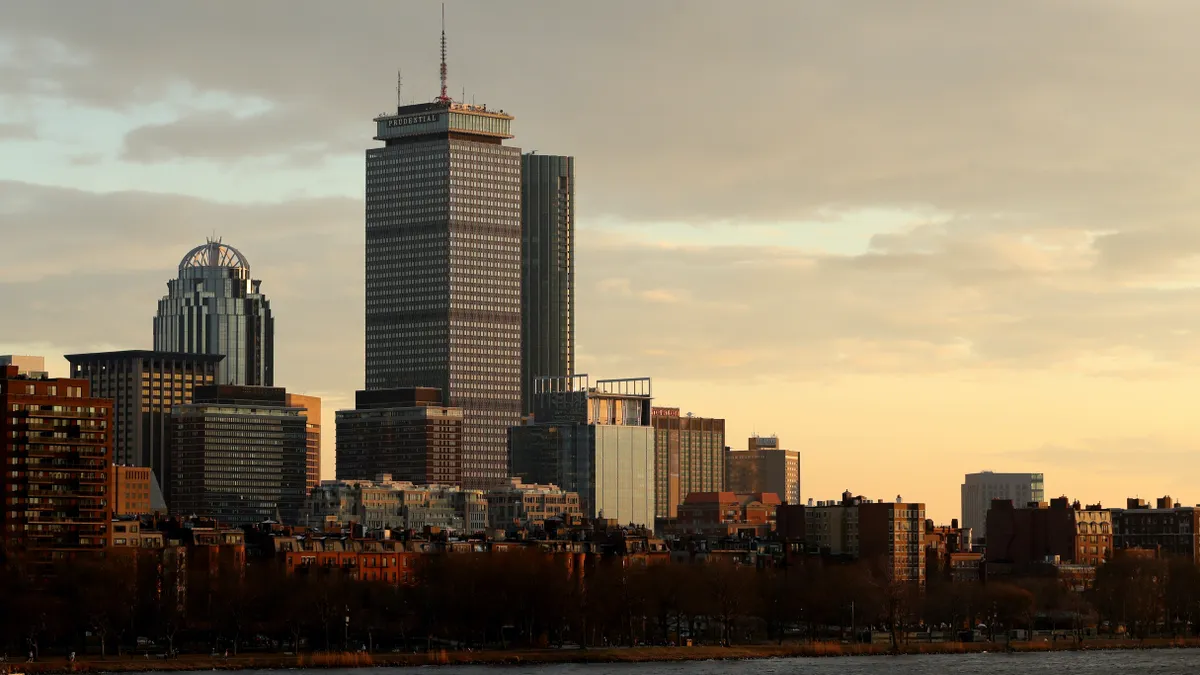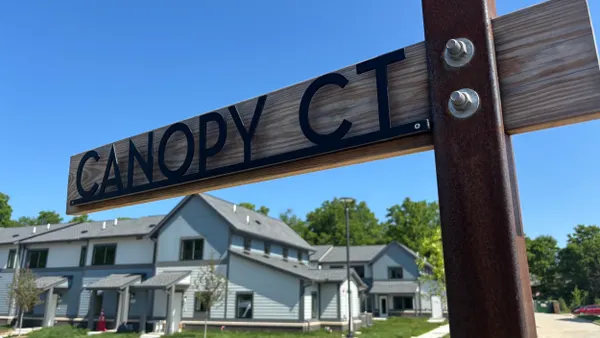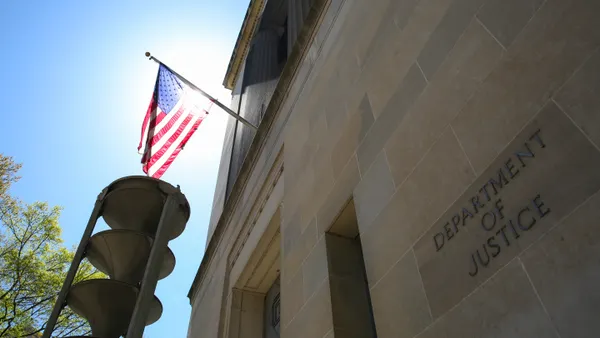Dive Brief:
- Massachusetts state legislators’ inaction on Boston’s request to implement a luxury residential real estate transfer tax, or “mansion tax,” has resulted in the city missing out on revenue intended to support affordable housing programs, according to a report this month from the Institute for Policy Studies. By state law, the Massachusetts Legislature must approve home rule petitions, such as new types of taxes or regulations.
- The authors of the report examined home sales at six luxury residential buildings in Boston. They determined that the proposed 2% transfer fee on units that sell for over $2 million would have generated $19.8 million in tax revenue from the time of the first unit’s sale through September 2022.
- The report cites three primary “invisible forces” disrupting Boston’s housing market: an explosion in short-term rentals, corporate ownership of rental housing and foreign investors. Just over one-third of the units examined are owned by LLCs or trusts.
Dive Insight:
The report’s authors recognized Boston’s construction boom over the past decade, which they say is affecting housing prices and affordability. They initially wanted to learn who is buying the new, expensive units, and the work ultimately evolved into an investigation into how much funding is being left on the table by not implementing a luxury real estate transfer tax, said report co-author Omar Ocampo, a researcher at the Institute for Policy Studies.
The researchers speculated that “these homes are being bought as an asset in a portfolio as opposed to being used... to actually house people,” Ocampo said. “We felt like there’s a lot of speculation in the market that was pushing prices up.”
Boston leaders have been floating the idea of a luxury property transfer tax for years as a way to fund affordable housing programs and minimize the city’s housing crisis. In 2019, Boston’s city council passed a luxury transfer tax that then-Mayor Marty Walsh signed. The measure didn’t get past the state legislature. Mayor Michelle Wu put forth a similar petition this year, and last month the state’s House of Representatives advanced the bill. It’s on hold pending further action.
The report's authors echo the rationale raised by many luxury transfer tax proponents: “It really would affect a small number of buyers,” yet it would generate a significant amount of affordable housing program funding, Ocampo said. “My logic is, if you can afford to buy a luxury apartment... then you’d be able to afford the extra [fee] that goes with the price.”
A luxury transfer tax on properties selling for $2 million or more took effect in New York in 2019, and an additional one is imposed on sales of $3 million or more. Next month, Los Angeles voters will determine the fate of a ballot measure to impose an extra tax on residential and commercial property sales that exceed $5 million. And a proposed mansion tax in Chicago would affect properties that sell for more than $1 million.
The report's authors acknowledge the argument that luxury property taxes can stunt home sales. “But in theory, that should make the housing prices more affordable by putting some downward pressure on prices,” Ocampo said.
The report cites data from the 2020 American Community Survey indicating 47% of renters and 29% of homeowners in Massachusetts’ Suffolk County are cost-burdened, meaning a household spends more than 30% of its income on housing expenses. The Boston Mayor’s Office of Housing released a report this year showing 52% of Boston’s renters are now cost-burdened.
“We're hopeful that in the long term this [tax proposal] will yield some positive results,” Ocampo said, while emphasizing the need for accountability with program oversight and funds distribution. “We’ve got to make sure that when this tax is implemented it's actually used and put in the Affordable Housing Trust Fund so they can spend it on creating new, and preserve existing, affordable housing units.”











